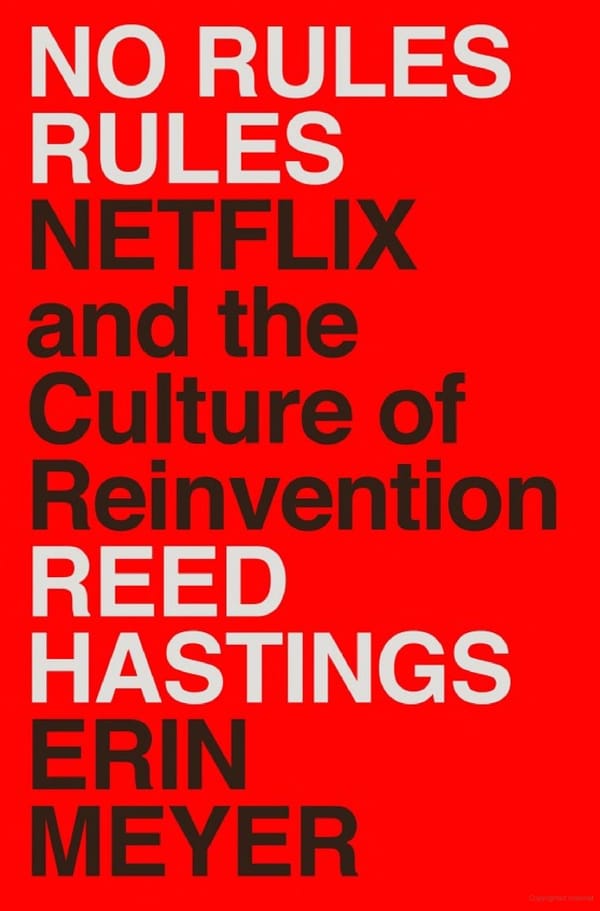Management: Ownership
The attitude of extreme ownership, espoused by Jocko Willinck is a powerful mindset in management. It's one of the keys to leading and supporting a high performing team.

Leaders must own everything in their world. There is no one else to blame. – Extreme Ownership
There are two unintuitive lessons when becoming a manager and leader. First, blame is often counterproductive. Blame is so natural that you have to unlearn it to be truly effective. Accountability is important, but not blame. Second, as a leader you really do own everything in your domain. This is best captured in Jocko Willinck’s book Extreme Ownership.
What do you do about a poor performer? Well first the leader’s responsibility is to provide the necessary resources and training. But if these prove insufficient then the right call shifts to doing what’s right for the team and mission. Ownership needs to be in service of the broader team.
Setting and enforcing standards is a key responsibility. There it is not what you preach, it’s what you tolerate that sets the bar. If there’s no accountability for substandard performance, then that becomes the new bar and new standard. Worse, you as the leader will lose respect and credibility. The same is true for parenting–when you threaten a punishment for substandard behavior, you must carry through with it.
An interesting anecdote I associate with Charlie Munger: if you’re a naval captain and your ship runs aground, your career is effectively over. It doesn’t matter if you weren’t on duty. The concept in mind is that you should be sweating bricks about anything that can go wrong. This level of ownership extends to the people and processes you put in place. It’s this mindset that is so powerful as a manager.
Another concrete example to illustrate this concept. Suppose your team does not execute well on the plan because there is confusion. Perhaps a natural response is to think that they could have done a better job understanding your instructions. The (extreme) ownership mindset shifts responsibility back to you as a manager. You did not do enough to make your directions clear. For example, did you tailor your message to the level of experience of your team? Did you leave enough time for clarification? Did you provide enough artifacts for your team to refer to before moving forward?
This mindset is not easy. To be at your best, you need to select a mission that matters to you.
The first benefit of this mindset is the attitude of no excuses for yourself. From Clear Thinking we have the quote:
No one cares about your excuses as much as you do. In fact, no one cares about your excuses at all, except you.
While you may have reasons why something didn’t happen, you should not be using them as a way of dodging responsibility. Instead, channel that energy into doing better next time and into improving your process.
The second benefit is that it takes ego out of the picture. If you spend your time actively looking for things that are slowing you down, you will naturally eliminate one of the biggest barriers: ego. You will naturally be interested in what is the most effective and not what makes you appear to be the most effective.
At this point you might be thinking this is a recipe for micromanagement. Nothing could be further from the truth. Willinck offers the idea of decentralized command to counterbalance extreme ownership:
This is proper command and control in a nutshell. It is one of the most complex strategies to pull off correctly. As a leader, it takes strength to let go. It takes faith and trust in subordinate, frontline leaders and their abilities. Most of all, it requires trust up and down the chain of command: trust that subordinates will do the right thing; trust that superiors will support subordinates if they are acting in accordance with the mission statement and Commander’s Intent.
This comports with my experience. When your team is ready, trusting them to step up is how you allow them to do great work. If you do their job for them, you are wasting their potential. This means you are not being a responsible steward of your team and their capabilities.
When I first read this book back in 2018, it changed my outlook on management and leadership. If this is not a concept that comes naturally to you, then I’d highly recommend picking up Extreme Ownership and thinking through its ideas.
Additional resources:
- More on the excuses quote here
Quotes I liked from Extreme Ownership
The book derives its title from the underlying principle—the mind-set—that provides the foundation for all the rest: Extreme Ownership. Leaders must own everything in their world. There is no one else to blame.
The leader’s attitude sets the tone for the entire team. The leader drives performance—or doesn’t. And this applies not just to the most senior leader of an overall team, but to the junior leaders of teams within the team.
Even the most competent of leaders can be overwhelmed if they try to tackle multiple problems or a number of tasks simultaneously. The team will likely fail at each of those tasks. Instead, leaders must determine the highest priority task and execute.
Willink summarizing his philosophy (and the challenge of leadership) with this framework. A good leader must be:
- confident but not cocky
- courageous but not foolhardy
- competitive but a gracious loser
- attentive to details but not obsessed by them
- strong but have endurance
- a leader and follower
- humble not passive
- aggressive not overbearing
- quiet not silent
- calm but not robotic, logical but not devoid of emotions
- close with the troops but not so close that one becomes more important than another or more important than the good of the team; not so close that they forget who is in charge
- able to execute Extreme Ownership, while exercising Decentralized Command.



